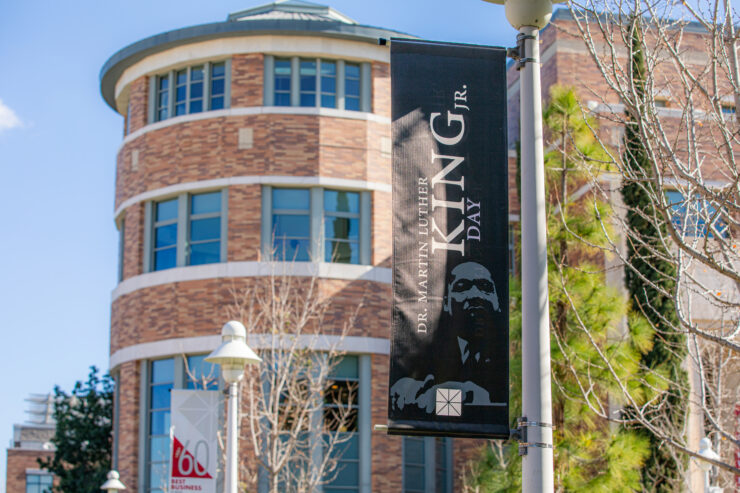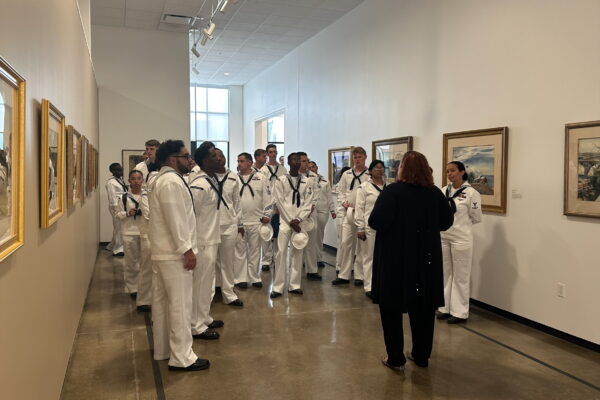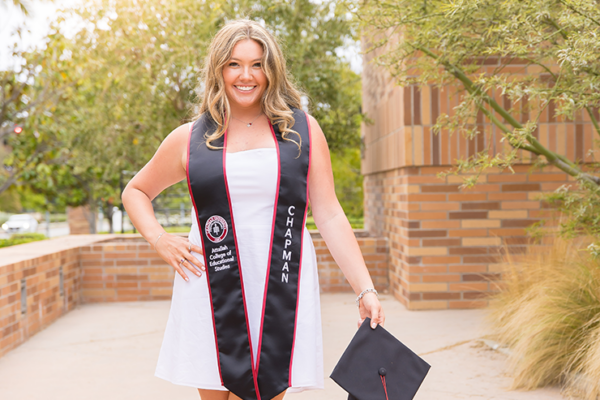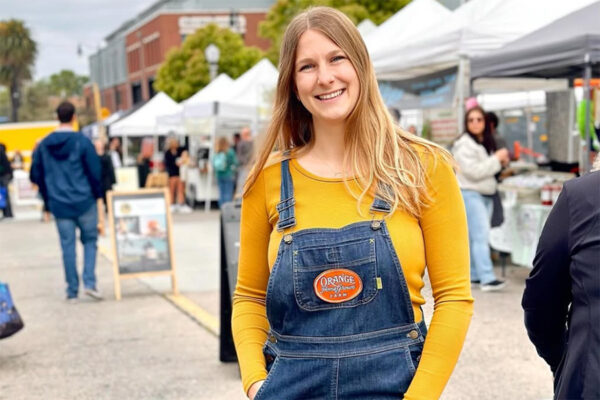At the beginning of the year, we, as a nation, officially commemorate the life and legacy of Dr. Martin Luther King, Jr. on the third Monday of January. Often the story of this man begins with his involvement in the Montgomery Improvement Association, which formed in direct response to the maltreatment and arrest of Rosa Parks. Dr. King’s acceptance as president of this organization begins a very public story of his work for equality and justice. But what prepared him to take up this historic mantle of leadership? Who was this man and where did his conviction for a better world come from?
A hero’s story begins long before the precipice of its historic arc. Heroes find themselves ready to accomplish good, often because they have been formed by wisdom and love from a community. In other words, what others have given to them in their early days make these champions ready to answer opportunity’s call to go beyond themselves in doing good. Dr. Martin Luther King, Jr.’s path to become a civil rights hero is, just so, the tale of a community of presences and voices. To quote Dr. King’s own sentiment: “This is not a drama with only one actor.”
There is no more eloquent, nor more accurate, description of the development of this man into the civil rights leader that we have come to know than what is written in his autobiography. We encourage you to take some time throughout this month to read his words and the story of his life. It is not the intention of this article to sketch out a temporally linear account of his formative years. Rather, we would like to highlight some of the key figures and thinkers who influenced him. We wish to present a pastiche of a community—a community which was instrumental to his becoming a great leader. Below are only a few actors in the drama of Dr. King’s early life.
Formative Presences
Dr. Martin Luther King, Jr. was born in Atlanta on Jan. 15 to Alberta Williams King and Martin Luther King, Sr. Both he and his father were born with the first name Michael but changed it to Martin in honor of the religious reformer, Martin Luther. In his own words: “I grew up in a family where love was central and where lovely relationships were ever present.” Both his mother and father were formative figures whose commitment to love was rooted in faith, both in God and humanity. They provided their children with important examples and framing for addressing the unjust and racist world around them. His mother “tried to explain the divided system of the South—the segregated schools, restaurants, theaters, housing, the white and colored signs on drinking fountains, waiting rooms, lavatories—as a social condition rather than a natural order.” And his father was both a preacher and deeply involved participant in the work of social justice. The inspiration of his parents is clear.
As a young Black man, Dr. Martin Luther King, Jr. experienced the vile injustices of segregation, discrimination and dehumanization. Even as a child, he wrestled with righteous anger and his response to the system that perpetuated these. It was through the words and examples of his parents, a call to a love that could imagine a future beyond the limits of vengeance, that he came to make sense of his response to a racist society. In his speech in Memorial Hall here at Chapman in 1961, Dr. King shed light on this kind of love in the concept of agape: “And so when we rise to love on this level we love men not because we like them, not because our souls are pure, but we love every man because God loves us. And we rise to the level of loving the person who does an evil deed while hating the deed that the person does.” It was in a house full of love, a community of care, that the seeds of this altruism and mercy were planted and tended. The fruit of these seeds are still being born for us all today.
No discussion of the impact of others on Dr. Martin Luther King Jr’s life is adequate without mentioning the influence and importance of Coretta Scott King. The two met in January of 1952 in Boston while Dr. King was studying at the School of Theology and she was a student at the New England Conservatory of Music. In a letter to Coretta, cited in Dr. King’s autobiography, he wrote: “My life without you is like a year without a spring time which comes to give illumination and heat to the atmosphere saturated by the dark cold breeze of winter.” Both Coretta and Martin fell in love and, in 1953, the two were married. In his writing, it is clear that Coretta (whom he called Corrie) was truly a partner in every aspect of his life. She shared his passion for justice from the earliest days of their romance. He notes, “if I had not had a wife with the fortitude, strength, and calmness of Corrie, I could not have withstood the ordeals and tensions surrounding the movement.” Together they built a family, both biological and through the work for social justice.
Formative Ideas
In addition to those in his physical community, there was a host of thinkers and authors that would come to inform Dr. King’s approach to the world. A community of ideas can reach across time and provide inspiration from those with diverse perspectives and experiences. The voices of those whom we read and engage with on an intellectual level are truly formative influences in our lives.
Early in his academic career, Dr. Martin Luther King, Jr. read “On Civil Disobedience” by Henry David Thoreau. Philosopher, author, and abolitionist, Thoreau was born in Concord, Massachusetts in 1817. His writings on politics questioned the ethics of compliance with morally evil laws. In these writings, Dr. King found significant inspiration, “I became convinced that noncooperation with evil is as much a moral obligation as is cooperation with good.” Reading the words of Thoreau in the context of his own experiences convinced him of the urgency of acting to resist evil and unjust social realities. You can hear this sentiment echoed in his words on our campus: “But if moderation means slowing up in the move for justice and capitulating to the undemocratic practices of the guardians of the deadening status quo, then moderation is a tragic vice which all men of good will must condemn.” There could be no permitting of evil.
Dr. Martin Luther King Jr.’s dedication to nonviolence was deeply informed by his reading of the work of Mahatma Gandhi. Born in India in 1869, Gandhi was a London-educated lawyer whose early career was in South Africa. While there, Gandhi faced significant discrimination and violence. He developed the concept of satyagraha which undergirded the nonviolent civil disobedience of the resistance movements he championed. “Love for Gandhi was a potent instrument for social and collective transformation. It was in this Gandhian emphasis on love and nonviolence that I discovered the method for social reform that I had been seeking,” notes King in his autobiography. This inspiration informed the powerful and effective approach that Dr. King’s leadership called for the United States.
The Impact and Invitation of Heroism
It was through these, and many other, people in his life, that Dr. Martin Luther King, Jr. was prepared for the heroic opportunity that history placed before him. Looking backwards, we can see how each of these influences contributed to what seems like a predetermined path. But hindsight is not the vision we are afforded as we live our lives, and so only by conscious and informed choices do we determine the direction of our personal stories. Dr. Martin Luther King, Jr. drew from the knowledge and love that he gathered from the voices of his community and used them as inspiration as he advanced justice across the nation. While his assassination in 1968 at the Lorraine Motel in Memphis, Tennessee reminds us of the violence of evil, his enduring influence and impact on our nation assure us that the voice of love cannot be silenced.
Locally, Dr. Martin Luther King Jr.’s visit to Chapman College on December 10, 1961, not only carried global significance but also left a profound impact on this community. His presence in Orange County brought the civil rights movement to the forefront of local consciousness, inspiring dialogue and action amongst the Chapman community. In an article from Chapman News, “Dr. King left me with the feeling that together we had engaged in a genuine intellectual exchange”, said Mark Messer, ’62. Chapman College became a platform for advancing conversations about racial equality and justice within the region.
The Office of Diversity, Equity, and Inclusion celebrates Dr. King’s legacy and impact at Chapman University annually by hosting the Dr. Martin Luther King, Jr. Community Service Awards. These awards recognize a trailblazer, faculty member, staff member, and a student organization making strides in the community through diversity, social justice, and community empowerment. Now in its third year, this event demonstrates the institutional commitment to Dr. King’s vision of multiple communities coming together in the name of peace, love, and community advocacy.
In large and small ways, history will place before all of us the opportunity to engage in good. But we must not be lulled into the idea that we alone have the capacity to answer that call. Rather, we can only be heroes for others when we are heroes with others. What community have you gathered around you that prepares you for the moments when heroic opportunity knocks on your door? Are you learning from others with diverse identities and experiences to challenge and expand the limits of your own human knowledge? How are you passing along your love and wisdom to those who come after you? Today, as we continue to seek an inclusive world, Dr. King’s words in his “Letter from a Birmingham Jail” ought to be part of all of our consciousness: “Injustice anywhere is a threat to justice everywhere. We are caught in an inescapable network of mutuality, tied in a single garment of destiny.” This is the wisdom we must carry forward, that in this billion-person drama of history, we cannot absolve ourselves of our role in advancing the freedom of all.
By Misty Levingston and Kevin Nguyen-Stockbridge, Ph.D.




